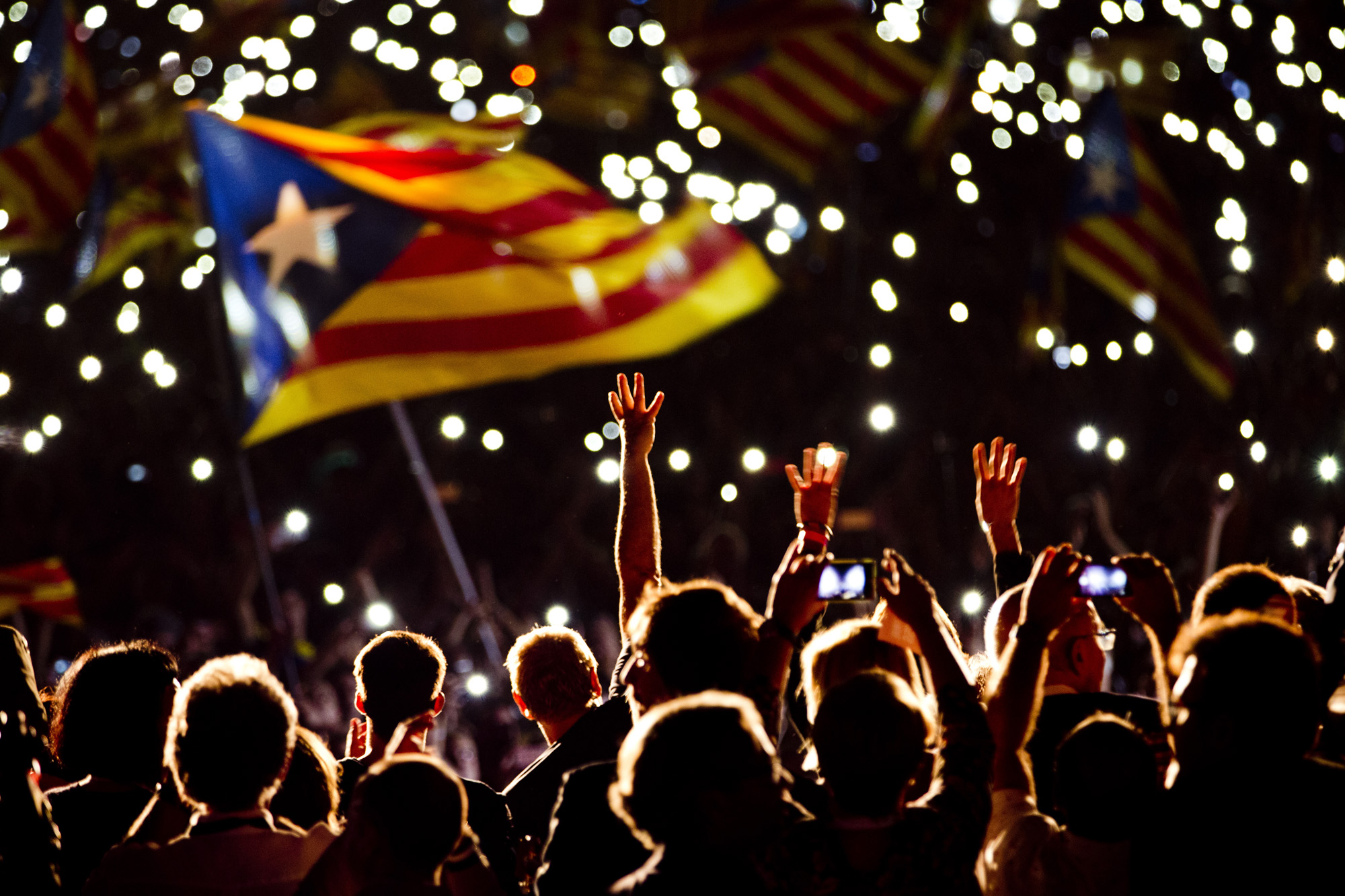By Irene Queralt
The term neverendum became popular in Quebec after a number of referenda on independence was held. It makes reference to the use of this practice as a political tool to mobilise voters.
After months of scepticism, I was surprised to hear about the official announcement of an independence referendum in Catalonia. This referendum is to take place on the 1st of October, and it has accordingly been named 1-O (although some are still unsure about whether this is an acronym for the date or a reference to the result of the political football match played against the central government). According to many, this voting seems to put an end to the struggle of the Catalan independence parties to secede from Spain. However, is this really the end of the neverendum?
Contrary to what the ruling party in Catalonia has argued, there are still obstacles that need to be overcome to put an end to this game of political chicken. In fact, the central government has not agreed to the celebration of this voting, and it has adopted certain measures that follow the hard-line approach reflected in most of their policies regarding the so-called Catalan problem. Such approach constitutes a big obstacle for the secessionist parties and may involve measures ranging from the banning of politicians and civil servants from public office to the deployment of security forces by the central government.
The belief of a Catalan independent state has been partly spread because of the politicisation of an unofficial and illegal referendum in 2014. Although the results were greatly favourable to secession (80.76%), only around a third of the population eligible to vote did so.
In the unlikely scenario of an agreement between the Catalans and the central government for the holding of a legal referendum in the region, there are still a number of issues that must be considered before calling for an end of the Catalan struggle for independence. Unlike what some people think, there is no clear pro-independence majority in Catalonia, and still a big part of the population remains contrary to the creation of a Catalan independent state. In fact, according to recent opinion polls, 46% would prefer a third-track solution and only 24.9% of the population of Catalonia identified themselves as exclusively Catalan in 2016. Why is there such an (apparently) divided and polarised society? The causes for the lack of a homogenous feeling of a(unique) nation in the region are complex, mostly due to relatively recent historical and political events. Nevertheless, it is crucial to understand the imaginary force underlying the construction of nations, which has acquired a certain degree of political legitimacy but have their origins in the mystification of low cultures by elites in the context of a capitalist economy and the spread of literacy and education (see Gellner, 1984 and Anderson, 1984 for more). Such imaginary dimension leads to different interpretations of national identity, which thus differ in locating independence as an ultimate goal to be pursued. Hence, once overcoming the legal obstacles of the central government, pro-independence parties still have a difficult political task to undertake: mobilising the electorate and appealing to those who remain cynical about secession to achieve a favourable outcome for the referendum.
But, what if they win? If the Catalans were able to successfully handle the political and legal restrictions and achieve the majority of the votes, there is still another barrier to break, that of the international community. Despite the continuous debate around the issue, there is no guarantee that Catalonia would be recognised as part of the European Union immediately after independence. In fact, according to the Prodi doctrine, they would need to reapply for admission in the Union. The uncertainty and instability that this period of partial international “isolation” could cause in Catalonia would have a very negative impact in the economy of the region. At the same time, there needs to be a good use of soft power to consolidate the image of Catalonia as a stable country that attracts the interests of the international community, investors and the civil society (amongst others). This process will take time and large amounts of money that the Catalan government needs to be ready to face.
The end of the neverendum? I don’t think so. Whether this popular consultation is another political tool used by separatist parties and elites to increase their electoral and economic capacity or it constitutes a true political effort aimed at independence is still unclear for many. However, even in the best of cases, there is still a long ride in the road to independence because of the aforementioned legal, political and economic obstacles yet to overcome.
